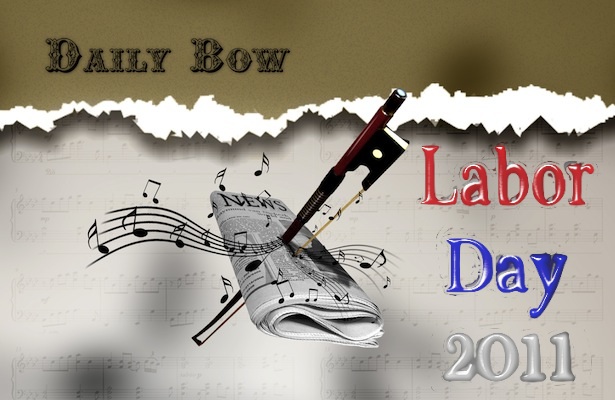It’s Labor Day 2011, a day of much-desired rest and celebration!
Unfortunately, some would say we have little to celebrate, especially in light of news that the US did not add any new jobs in the month of August.
But these trying times give rise to some of the greatest opportunities and leaders.
- Although the classical symphony is in trouble, innovators are stepping up to build a new future for the orchestras.
- One example of this innovation is Houston-based Mercury Baroque, which performs Baroque music on period-accurate instruments. They are a great example of a creative success: staring off as a chamber ensemble, Mercury Baroque has developed into a “full orchestra of young musicians” and performed for audiences all over the world.
- Tough economic times did not stop Chicago from celebrating Labor Day Weekend with its annual jazz festival. Coming up on September 15-22 Chicago will also put on its 13th Annual World Music Festival. You can’t keep a city passionate about its music down!
Labor Day honors the creation of the labor movement and the social and economic achievements of American workers. But like many social forces, it did not become a movement overnight. The organization of workers had very humble beginnings, much like many great musicians and artists.
In a testimonial to the power of both labor and music, the LA Times ran an incredible article on some of its residents’ first jobs. One of those stories is about Robert Gupta, First Violin in the Los Angeles Philharmonic.
I’ve always thought my first job was a total fluke, a strike of lightning. Finishing up at grad school, I was deeply conflicted, trying to choose between a life in music or in science. I’d been lucky enough to land research internships at two incredible neurobiology laboratories after a pre-med undergraduate degree, and I was beginning to harbor a burgeoning passion for examining how the brain responds to music. But it was the music I craved. I had played the violin from a very young age, and my heart and fingers cried out for a musical life. At 19, on a whim, I decided to shoot for the impossible and audition for the Los Angeles Philharmonic.
…
Earlier this year, I realized a dream during a Philharmonic tour — to play in the Musikverein in Vienna —moreover, to play Mahler’s Ninth, in Mahler’s own city, his own hall. And that dream wasn’t mine alone. I shared it with just about every other musician on stage, including the maestro. We had tears in our eyes during the last movement.
Contrary to what some may believe, an orchestra is not just a group of people celebrating an archaic form of music. Being in the orchestra has placed me squarely within a diverse community of listeners and followers, who live very much in the here and now. Through the L.A. Phil, I met my friend Nathaniel Ayers, a formerly homeless musician who struggles with mental illness, and I experienced through him an epiphany about why I became a musician. I’ve started a concert series, the Street Symphony, which brings free classical music to the homeless and mentally ill living in places like skid row. Music is a communication that goes deeper than words; it registers fundamentally with the psyche and spirit, and it can be healing and redemptive. I know our current music director, our shining beacon of classical music, Gustavo Dudamel, feels the same way, and is determined to have an orchestra whose music embraces our community.
…
I can’t imagine a better first job.
See the full article and other inspiring stories!
What classical music do you think best represents Labor Day?
Perhaps Dmitri Shostakovich’s 11th Symphony, commemorating the Russian Revolution of 1905, is a fitting symbol of Labor.
Or does George Antheil’s Ballet Mécanique offer insights particularly valuable on this day? This work, a ballet representing mechanical instruments rather than human dancers, seems to musically embody the industrial system. It is a powerful reminder (and maybe warning) of why human capital is always important, no matter how advanced technology becomes.
Somewhat more obscure but perhaps perfect for the occasion is the Workmen’s Chorus from Daron Hagen’s opera Shining Brow. But of course we cannot forget classics like Aaron Copland’s Fanfare for the Common Man.
—————
Labor Day is a tribute to the contributions that workers have made to the prosperity and health of our country. Musicians and other artists have played an important role in feeding that health over many years.
Difficult economic times do not constitute an excuse to ignore our obligation to recognize those who have fought (and still fight) hard for these achievements.















Highly revealing thanks, It appearance like your current followers may maybe wish a lot of reviews like this continue the great effort.